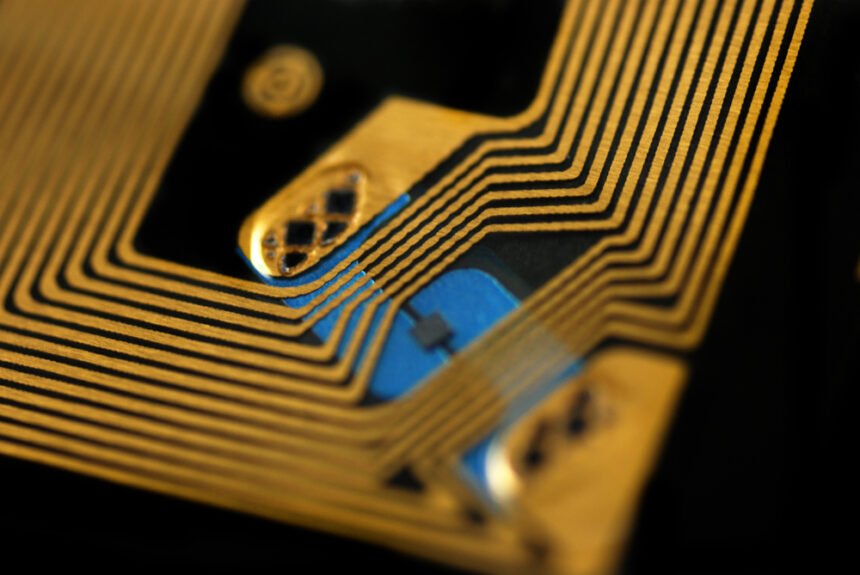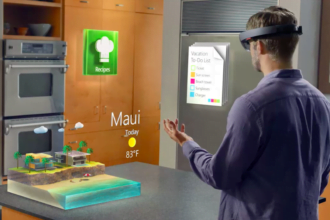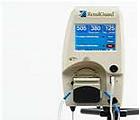The request for RFID implementation becomes more and more popular in custom healthcare software development. Radio-frequency identification is a relatively simple technology that is widely used in retail, supply chain management, logistics, and many other areas. You’ve probably seen how it works, even if you didn’t know about that.
For example, most clothes in shopping malls have RFID tags attached to their labels, while stores’ entrances are equipped with tag readers (i.e., inside of the gates). So, when someone passes through the gate with a stolen item, a reader obtains data from a tag and activates an alert sound.
The medical industry has already started the RFID adoption, and the process is moving forward pretty steadily. But healthcare is still lagging behind other business sectors. Exoft has worked with hospitals and clinics a lot. This article will outline what benefits RFID implementation can bring to patients and medical organizations.
Patient safety
When it comes to providing quality medical care, patient safety is always a priority. That’s why healthcare providers implement a range of safety measures, from infection control procedures to identification checks. But there are also certain categories of patients who have special needs, for example, people who have dementia or other types of memory disorders. To keep them safe, medical staff must be able to constantly track their movement inside the healthcare facility. In this instance, RFID is invaluable. It allows clinicians to easily monitor wandering patients and identify their location at any given moment.
Besides, some hospitals use RFID for newborn monitoring. It helps to match infants with their mothers and prevent abduction incidents or cases when babies are accidentally switched. For example, the RFID technology can automatically trigger the locking of hospital doors if someone tries to take a baby away. So no more Indian soap operas in real life.
Hand hygiene compliance
Hand hygiene practices prevent healthcare-associated infections and protect medical staff and patients from diseases spread by touch. Most hospitals and clinics strive to improve the level of compliance with handwashing protocols. But the problem is that doctors and nurses work in stressful environments with a lot of patients looking for their help. Despite the fact that most of them know when and how to wash their hands, they are often self-delusional about their actual hand hygiene behavior.
RFID can help clinicians adhere to protocols and aid healthcare providers in increasing handwashing rates. The only thing that medical staff has to do is to wear badges with RFID tags inside, while cleaning stations have to be equipped with RFID readers. The latter ones gather information about individuals who use a station and the time during which they stay near it. As a result, hospital management gets accurate information about personnel’s compliance with handwashing rules.
Patient flow
Waiting time is one of the factors that impact patient experience the most. But when many people seek medical help simultaneously, it’s almost impossible to avoid delays, and the queue quickly becomes really huge. It especially applies to emergency rooms that don’t have predefined schedules. Although the RFID deployment cannot decrease the number of patients, it can streamline patient flow.
For instance, there are RFID-enabled solutions that allow hospital administrative staff to monitor the waiting time of each patient. When checking in at the reception, patients receive badges or wristbands connected to tag readers and hospital management software. If a person waits for too long (e.g., more than 30 minutes), a system alerts clinicians so they can take measures. The data collected by an RFID-based system also helps hospital managers make more informed strategic decisions (e.g., whether they need to increase the number of doctors or nurses).
Turnaround time
Surgery units are always busy and have strict rules of letting patients in and out. A typical patient journey consists of several stages: registration, preoperative phase, surgery, and postoperative recovery. Also, hospital staff has to prepare operating rooms before every patient, which is usually a rather complicated procedure. Naturally, the abundance of mandatory tasks slows down a turnaround time, making the workflow at surgery units intense and unpredictable. But RFID technology can significantly improve this situation.
If hospitals equip operating rooms, beds, and surgery inventories with RFID tags and readers, it’ll become possible to automate the entire process. The RFID-enabled system will send messages with the relevant updates to the staff’s mobile applications, and they will immediately know what to do. For example, when a patient is transferred to a postoperative recovery unit, the RFID technology will notify housekeepers about the necessity to clean up a surgery room. The minimization of real-life interactions can significantly speed up the process and enhance the patient experience.
Medication administration and traceability
Like all human beings, nurses can make mistakes if they don’t have technical tools to ensure that the patients get the right medications. That’s why it’s critical for healthcare providers to create reliable IT infrastructure that would eliminate the risk of different medical errors, including those associated with pharmaceuticals. RFID technology can become the foundational element of such infrastructure.
In particular, RFID-tagged packages can help clinicians quickly verify the product, detect counterfeit drugs, and identify medications that expire soon. Also, RFID-based solutions can assist the nursing staff in managing daily medication trays without the fear that some pills might be dispensed to the wrong people. Lastly, the RFID implementation can enhance inventory visibility and ensure that the oldest drugs in stock are used before the newer ones.
Wrapping-up
RFID can be implemented in numerous healthcare solutions that have the potential to significantly improve the delivery of clinician services. Increased patient safety, a higher level of hand hygiene compliance, streamlined patient flow, reduced turnaround time in surgery units, and effective medication administration are only a few of many benefits that RFID technology can offer. All of them ultimately result in better experiences that patients and medical staff get in clinics and hospitals.









